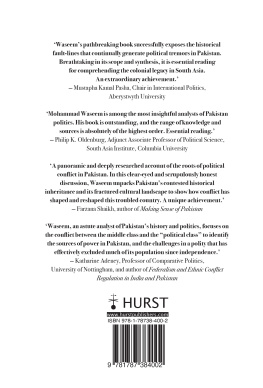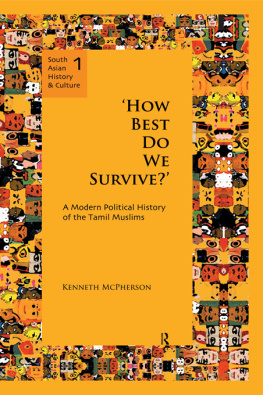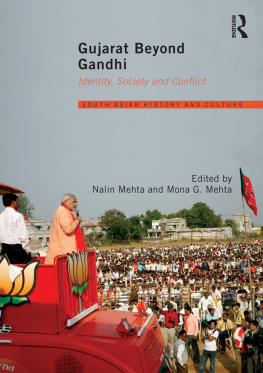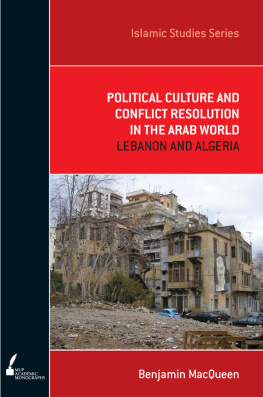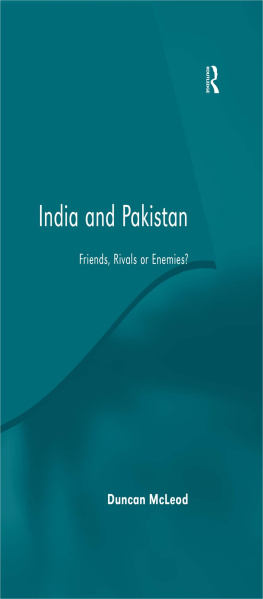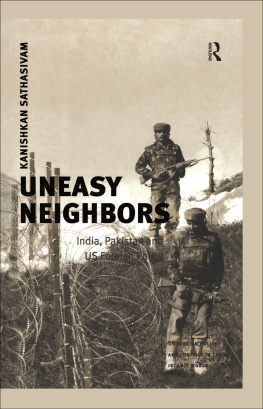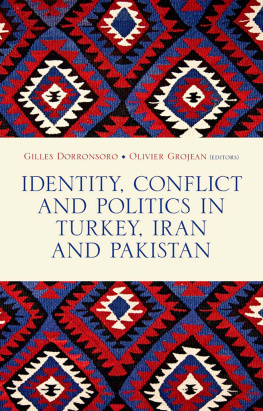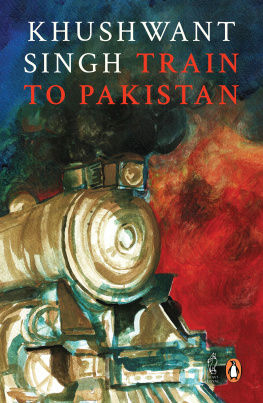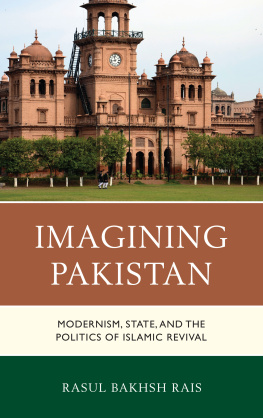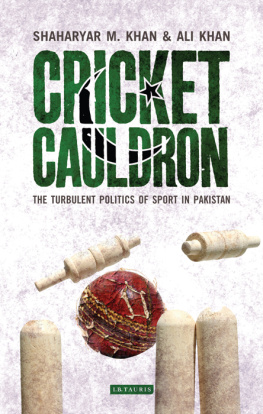Table of Contents

POLITICAL CONFLICT IN PAKISTAN
Comparative Politics and International Studies Series
Series Editor: Christophe Jaffrelot
This series focuses on the transformation of politics and societies by international and domestic factors, including culture and religion. Analysing these changes in a sociological and historical perspective, it gives priority to trends from below as much as state interventions and the interaction of both. It also factors in dynamics at the interface of inter/transnational pressures and national tensions.
MOHAMMAD WASEEM
Political Conflict in
Pakistan

HURST & COMPANY, LONDON
First published in the United Kingdom in 2021 by
C. Hurst & Co. (Publishers) Ltd,
New Wing, Somerset House, Strand,
London, WC2R 1LA
All rights reserved.
Printed in the United Kingdom.
Mohammad Waseem, 2021
The right of Mohammad Waseem to be identified as the author of this publication is asserted by him in accordance with the Copyright, Designs and Patents Act, 1988.
A Cataloguing-in-Publication data record for this book is available from the British Library.
ISBN: 9781787384002
This book is printed using paper from registered sustainable and managed sources.
www.hurstpublishers.com
For Raazia
CONTENTS
ACKNOWLEDGEMENTS
I have incurred various debts in the process of writing this book. I consulted the British National Archives and the British Library in London, the National Assembly of Pakistan Library and the National Documentation Centre in Islamabad, as well as the library of Lahore University of Management Sciences (LUMS). I must thank the staff in these institutions for their cooperation in locating the relevant material. I am grateful to my colleague in LUMS, Dr Asma Faiz, for reading the manuscript and for her valuable comments about linking ideas and arguments. I want to thank my friends and colleagues for waiting tirelessly for the book to be completed and for providing moral and institutional support, especially Dr Ali Khan. I thank Dr David Taylor for reading parts of the book and for suggesting improvements in both content and style.
The book draws heavily on my research in recent years that has focused on a reappraisal of politics in Pakistan. In this phase of my scholarship, my research gradually focused on the power play among various actors on the political stage belonging to different strata and communities. Parts of the present book draw on published articles and book chapters duly acknowledged in the text. However, a major part of the book is the product of my recent academic struggle to understand and interpret the persistence and sustainability of conflict at various levels of the state and society. In this endeavour, I brought to light the direct and, more significantly, indirect role of groups and communities, state institutions and political organizations, cultural frameworks and ethnic identities, which had long been part of my political imagination and academic pursuit but which have found fuller expression in the present book.
Finally, I must thank my publisher, Michael Dwyer, of Hurst Publishers for his understanding regarding the long wait for the manuscript of this book, which was delayed for various reasons during the Covid-19 pandemic that covered a major part of 2020. I am also thankful to Lara Weisweiller-Wu of Hurst, who was very patient with me with her gentle reminders as well as encouragement. My special thanks are reserved for Professor Christophe Jaffrelot for his encouragement in this endeavour and for his interaction with me at various points over the last quarter of a century. Ultimately, responsibility for the views expressed in this book lies with me.
LIST OF TABLES AND FIGURES
Tables
Partition and migration in Punjab and Bengal |
Refugee resettlement in Punjab and Sindh |
Refugee settlement in East and West Punjab |
Elections: Patterns of leadership, alignment and commitment |
Establishmentarian democracy in Pakistan, 19472021 |
Democracy in Pakistan: Grey area between design and practice |
Military metaphysics in Pakistan |
The garrisonmullah alliance |
Quota system, 1948 |
Quota system, 1949 |
Quota system, 1973 |
Figures

